Hi, I'm Emma and I am currently a student at Swinburne University. Here I will be exploring the weekly ideas within the Digital Communities unit here at Swinburne. Enjoy!!
Don't wanna be here? Send us removal request.
Text
Week 11: Global Social Media
Well here we are, we’ve finally made it to the final week. Se here we go with the final blog post. This week we looked into global social media and in the lecture we specifically focused on China and their social media. Now while social media is used globally, you can be friends with someone on Facebook, follow someone on Twitter or Instagram who is from another country. This is where China makes it interesting, because of their social media restrictions. Popular platforms such as Facebook, Instagram, Twitter, Tumblr, Youtube and Google. Yeah, that���s right, Google is banned in China. Now you might be thinking, how do they look up information or diagnose their illness symptoms without Dr Google? Well to start, if you haven’t already noticed, Google isn’t the only search engine. There is Bing and Yahoo, however they are also banned in China. So, to add another to the list, Baidu, the Chinese version of Google.
So while popular social media platforms like Facebook and Instagram are banned in China, it does not mean that they do not have access to social media altogether. In fact, according to Statistica (2018) there are 664 million internet users in China. So rather than the classic social media platforms, they have their own alternatives. Instead of Facebook they have RenRen, Weibo instead of Twitter, QQ instead of Gmail and Facebook Messenger and the list goes on. So the reason for needing complete alternative platforms you might ask? Well it’s pretty simple actually, censorship of information. The Chinese government censor what information is available to the public “claiming that [media] expose state secrets and endanger the country” (Xu & Albert 2017) and social media is no exception.

The Great Firewall is exactly as the name suggest, a great firewall. It is a government operated project which censors and surveys the internet. This is the system which blocks websites such as Facebook and Google (Chen & Yang 2018) and deletes any media which the government deems threatening. Back in 2012, Michael Anti did a TED Talk on the Great Firewall. He compared the firewall to The Wall in Game of Thrones, a great big wall that “prevents weird things from the north”, or, back to real life, the Great Wall of China. And that is exactly what the Great Firewall does, it prevents any unwanted information or media from being reached by the Chinese public.

So here is where I leave you. I hope that you have enjoyed these weekly posts over the semester or if this is the first post you’ve read, welcome!!
Resources:
Xu, B & Albert, E 2017 “Media Censorship in China”, Council on Foreign Relations.
Chen, Y & Yang, D 2018, “The Impact of Media Censorship: Evidence from a Field Experiment in China”, Stanford University, https://stanford.edu/~dyang1/pdfs/1984bravenewworld_draft.pdf
Statistica, 2018, https://www.statista.com/statistics/265146/number-of-mobile-internet-users-in-china/
Anti, M 2012, https://www.ted.com/talks/michael_anti_behind_the_great_firewall_of_china#t-94400
0 notes
Text
Social Media in China: The Same, But Different
By Meaghan Murphy
April 10, 2012
As Chinese consumers spend more time online, foreign companies need to start learning more about domestic social media platforms in order to keep up with the developing economy. It is important for businesses to remember that Chinese social media platforms differ from Western platforms in various ways. Companies can take advantage of China’s platforms in order to perform consumer research, launch their own products, manage public relations crises, etc.
Even with the use of censorship, the Internet has granted Chinese citizens access to information they would never have been able to obtain just a few years ago. “Coming from a world where information was pre-filtered by editors and state-run media, China’s Internet is freewheeling by comparison.” Instead of eliminating social media, China’s restrictions on foreign websites caused a rise in “home-grown, state-approved ecosystem in which Chinese-owned properties thrive.” Even though YouTube, Facebook, and Twitter are blocked in China, their Chinese equivalents are continuously expanding. In addition, according to a Boston Consulting Group study, Chinese Internet users are online for an average of 2.7 hours per day, which is similar to the usage patters of Internet users in Japan and the United States.
Given these statistics, one might ask what are the factors that help drive the Chinese, more than other populations, to engage in social media? One of the factors is rural-to-urban migration in China, which has separated families. Therefore, families turn to social media in order to connect with the relatives they are distant from. Another factor is a distrust of information from government-controlled media. In addition, the third factor is the loneliness of the one-child generation. Since each family is only allowed to have one child, children look to social media in order to interact with friends and other their age since they do not have siblings to spend their time with. In f act, according to a 2008 survey, young people in China only have more friends online than offline. This suggests that in China, more than in other countries, social media has become deeply integrated into people’s lives and “it is less important to distinguish what happens online from the ‘real world.’”
According to a recent study by OgilvyOne in China, 55% of Chinese Internet users used social media to engage in online discussions about companies. This discovery made it clear that understanding social media was no longer an option for Chinese companies – it was a necessary. “Now, the penetration and impact of social media is such that failing to understand what consumers are saying about a company online has become a business risk.”
In order to understand the China social media platforms better, a series of social media “bulls-eyes” were developed that put international platforms on the outside ring and placed their local equivalents on the inner ring. For example, YouTube, Twitter, and Facebook would be on the outside ring while China’s equivalents of Youku, Tudou, and others would be put on the inside ring. Although having this comparison is helpful, it can also be misleading. China’s social media platforms vary in many ways from their international equivalents, however censorship is not the only reason for these differences. “In China, as elsewhere in Asia, local variations of Internet usage are driven by language, culture, levels of economic development, and the underlying digital ecosystem.” Digital ecosystems are known as the platforms that people focus their online communications around, can have major variations between and within countries. For example, Internet users in Japan and South Korea mainly use domestic social media platforms such as FREE and Cyworld rather than internationally known sites.
Understanding different country’s social media usage patterns can reveal a lot about the Internet and the country involved. For example, Chinese Internet users use their equivalent of YouTube to watch longer videos so that it acts more like a television station and they spend up to an hour per day on the site. While American Internet users use YouTube to watch short videos of animals or what-not and spend only less than 15 minutes daily on the site. “In some ways, the sites resemble a variation on US-based television service Hulu more than YouTube. The television-like feel of Youku and Tudou reflects the usage pattern of young Chinese,” saying that they are much more active users than those in the United States. Nowadays, if you ask a group of Chinese students if they have watched local television within the last week, no hands would be raised. But you if you asked how many students had watched a video on Youku or Tudou within the last day, every hand would go up. “This switchover to social media does more than demonstrate the popularity of new media – it affects the whole advertising industry.” As a result, certain Chinese demographics can no longer be reached through television, therefore advertisers and companies must begin to find new ways to reach their demographics through social media.
4 notes
·
View notes
Text
Freedom and the Internet
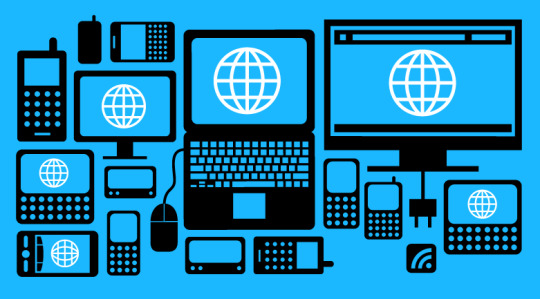
Governments can have a major effect on the way its citizens use the Internet. China is notorious for its pervasive legislation on Internet censorship, most prominently its online censorship system dubbed the ‘Great Firewall of China’. This system blocks foreign websites including Google, Facebook, Twitter, Instagram, YouTube and many other online platforms popular in the West. In addition to the websites themselves, much online content is blocked every day by the Chinese government, from sensitive material such as pornography to political opinions. According to the watchdog organization Freedom House, China was ranked the worst nation for promoting the freedom of Internet between 2015 and 2016. This lack of Internet freedom in China serves as an important reminder to Westerners of how important it is to monitor any efforts to curb or control these freedoms – whether from governments or companies.
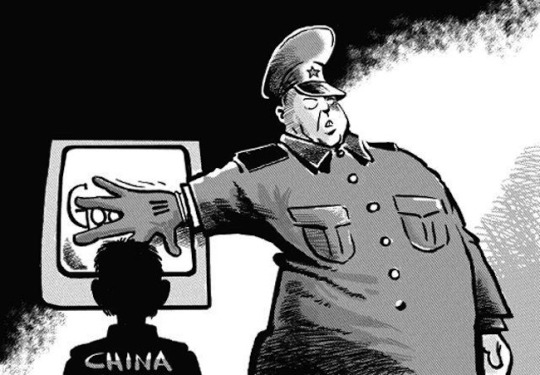
In China, Internet censorship has had a great effect on how its citizens communicate. With the rise of social networks and mass communication, it is becoming increasingly difficult for the Chinese government to censor certain websites and online services. Chinese dissidents have found ways to gain access to banned social networks and use alternative forms of communication. For instance, some people use the app “FireChat” that utilizes Bluetooth and cell radio technology to make calls as opposed to more traceable mediums such as cell service or the Internet (Parker). Other users own virtual private networks (VPNs) to send their IP addresses to other countries. This way, they can gain access to location-locked services and banned websites without being tracked by their government.
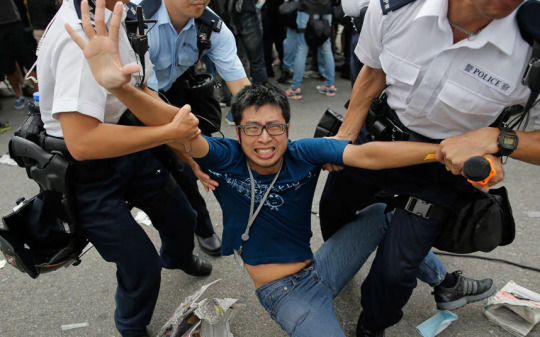
Many Chinese citizens use these services because they are afraid of having their government cut off their Internet access or of being arrested. In 2014, nearly two dozen people across mainland China were detained for sharing articles and photos sympathizing with Chinese protesters. One of the most famous examples of this was in response to the 2014 “Umbrella Revolution”. Protesters sat in the streets with umbrellas to protect themselves from police tear gas in protest of new electoral reforms in Hong Kong. Those who were not detained reported being threatened with arrest by authorities if they continued to publicize news of the protest (Jacobs). In recent years, there have even been instances of government-sponsored phishing – gaining online information through deceitful advertisements and malicious website links. These surveillance tactics contribute to the fear many Chinese citizens feel under the watchful eye of their government.
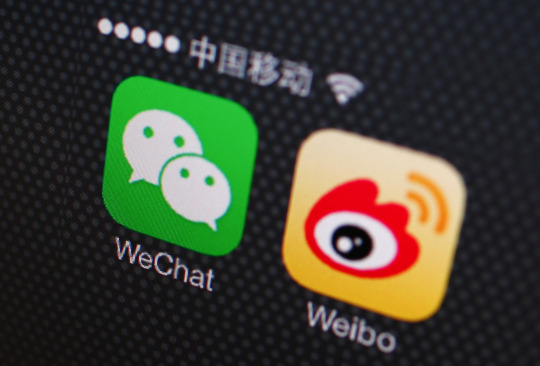
China’s Internet censorship also has controversial economic ramifications. Since China has blocked access to many foreign websites, most Chinese citizens are limited to only the services that their government deems appropriate. This creates a self-insulating economy; without a strong presence of rivaling international businesses, Chinese tech companies such as Tencent, Baidu and Alibaba have become monopolies in China (Gracie). As the world’s biggest retail marketer and with over 695 million Internet users as of December 2016 (CNNIC), these companies have been manipulating China’s large online market and strict Internet regulations for their own profit.

Many westerners are tempted to see this as a ‘Chinese’ problem but should not become complacent when looking at China’s current situation. In Canada, there has been much controversy over the past few years surrounding the Anti-Terrorism Act (commonly referred to as Bill C-51) which was passed in 2015. This legislation further constrains the promotion of terrorism and “expands information sharing among federal government institutions that have jurisdiction or responsibilities concerning national security threats” (Parliament of Canada). This authorization of increased government surveillance has raised privacy concerns. In the 2016 - 2017 annual report to parliament, the Privacy Commissioner of Canada addressed the risks the bill presents:
Our submission noted that Bill C-51 put the privacy of ordinary Canadians at risk with the dramatic expansion of the scale and scope of government information sharing—a problem exacerbated by seriously deficient privacy protections (57).
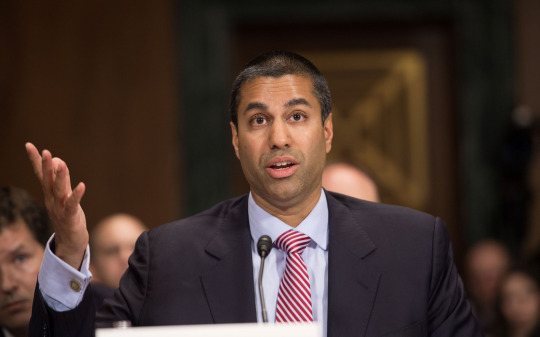
In the U.S., the Federal Communications Commission (FCC) has created much controversy concerning its vote to repeal existing net neutrality legislation. Net neutrality laws mandate that Internet service providers (ISPs) do not charge users differently based on their metadata (platform, content, location, etc.). If these laws are repealed, ISPs may pose a threat to the freedoms of many Internet users and will encourage other nations to adopt similar practices.
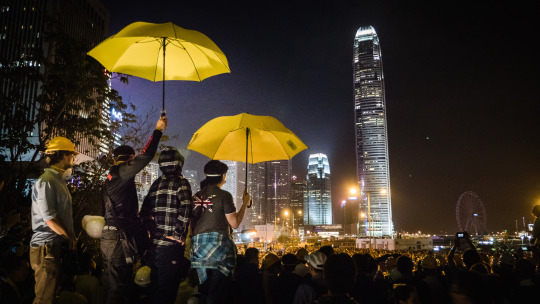
The mutual lack of trust between the Chinese government and its citizens is a result of the country’s widespread Internet censorship and surveillance. It limits its citizens’ freedom of speech, makes outside communication more difficult and threatens the privacy of its citizens. The Internet is a place where ideas are shared and connections are made. For the Chinese government to limit, track and control its nation’s access to this valuable resource stifles the freedom of its citizens. While westerners continue to enjoy more online freedom than their Chinese cousins do, they must continue to guard these freedoms.
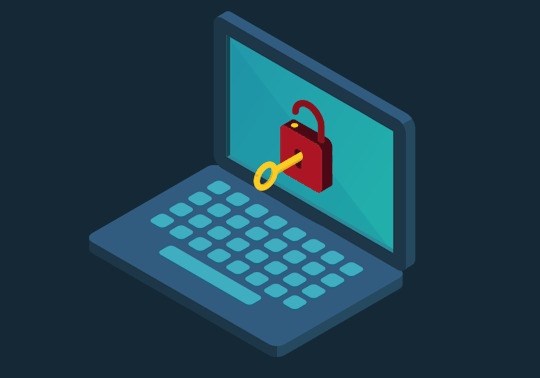
References
China Internet Network Information Center. “Statistical Report on Internet Development in China.” Trends. 2017.
Freedom House. “Freedom of the Net 2016.” Human Rights. 2016.
Gracie, Carrie. “Alibaba IPO: Chairman Ma’s China.” BBC News (2014).
Jacobs, Andrew. “Detentions of Hong Kong Protest Sympathizers Reported in Mainland.” The New York Times (2014).
Library of Parliament Research Publications. “Bill C-51.” Legislative Summary. 2015.
Office of the Privacy Commissioner of Canada. “2016-17 Annual Report to Parliament.” Annual Report. 2017.
Parker, Emily. “Social Media and the Hong Kong Protests.” The New Yorker (2014).
97 notes
·
View notes
Text
The Great FireWall of China
Most of y'all know that China have blocked most western media and social media sites like Instagram, Facebook, Snapchat and most recently, Tumblr. As well as the search engine Google. Usually, we used VPNs to bypass and get access to our lovely “unmonitored” (although the NSA is sure looking at our shit. So if my American followers repost this, HI GUYS!) compared to the Chinese social media equivalents which are SUPER MONITORED. If you post anything the government doesn’t like, they delete it before it is uploaded to their internet. I know, maddening. Well! China has done it again! This time, with the VPNs, they will be banned by 2018. Already, I have noticing trouble connecting with the ones I have and haven’t been able to download anything new 😓. Even the VPN routers are being blocked…Which leaves me to wonder, what will people come up with to bypass the blocking of VPNs…WhatsApp was another social platform which has been noticing some messages getting deleted and video and images being unable to send. Anyways….y'all will be seeing less of me as the months go by. And that sucks.
64 notes
·
View notes
Text
Week 10: Social Gaming
Social gaming, not something I can say I am an expert in. Now I’m not saying I was deprived of games as a child, but it’s not something I partake in regularly. Upon looking up the definition of social gaming, I found “the activity or practice of playing an online game on a social media platform” (Dictionary.com 2018). However, when I think of social gaming, I do not limit social games to just being online. The term can be interpreted in many ways. I consider social gaming to be games which require at least two people to play. Playing something like Monopoly or Twister is pretty difficult to play on your own and to me, if you’re with another, you are being social.

Growing up I’d play many games with my friends and family. I’d go to a birthday party and we’d play pass the parcel or do a treasure hunt. I was being social, interacting with my friends and playing a games. At home, my brother and I, sometimes my parents too. would spend hours playing on the Nintendo 64 or Xbox together, racing each other in Mario Kart or beating each other up in WWE wrestling. None of these games are necessarily online, yet we were playing with each other and being social.

However, with the development in technology, the invention of the internet, an increase in online activity and the making of online games, it has changed social gaming. Now people don’t even need to meet face to face to play a game with each other and they can play from the comfort of their own bed. Back in 2006, Facebook introduced games onto their platform. Games such as Farmville and Candy Crush allowed people to play a game on their own, while being able to invite others to play and send them gifts in the game. More so, multiplayer video games allow people from all over the world to interact with one another through playing a game over the internet.
But with this, there can be both advantages and disadvantages. Advantages include, connecting with people and creating new networks and communities, a source of entertainment and can help children in being more mentally active and sharper (Vicorkarm 2014). However some disadvantages can include, stranger danger with not knowing exactly who is on the other side of the screen and can result in kids being targeted for cheating and harassment (Vicorkarm 2014), addiction which can cause short and long term effects and is also open to racism and sexism. So while the internet and social gaming can seem relatively safe, there can be some downsides to them.
Both of this week’s readings looked into the tules and norms and the importance of online consent, particularly looking into EVE Online, a multiplayer, role-player game. The Mittani scandal is an example of a disadvantage of online social gaming. While the particular issue that occurred did not take place online, it did stem from the online game. So, what actually occurred was, an eve online player who went by the name of The Mittani, who was also part of the Council of Stellar Management, had a panel at a Fanfest Convention. While on stage, he showed slides of conversations that had taken place within the game, one of which being a player complaining that they were continuously being ganged up on and explaining they had been wanting to die after a recent divorce and that, that was what was happening to them in the game. The Mittani proceeded to then tell the audience “if you want to make a guy kill himself, his [in game] name is [xxxx]” (Suzor & Woodford 2013). The Mittani was then suspended from the game for a tine and had to step down from his position on the CSM.

So while I interpret social gaming as any game, online or offline, which has to be played with more than just the one person, my other thinking is that it could also be interpreted as a game in which to play the game itself, you have to interact with another who is also playing that game. So I’ll leave you on that. What is your interpretation of social gaming?
Resources:
de Zart, M & Humphreys, S 2014, “Lawless Frontier of Deep Space: Code as law in EVE Online”, Cultural Studies Review, vol. 20, no. 1, pp. 77-99.
Suzor, N & Woodford, D 2013, “Evaluating consent and legitimacy amongst shifting community norms: An EVE Online case study”, Journal of Virtual worlds Research, vol. 6, no. 3
Vicorkarm 2014, “Online Gaming - Advantages, disadvantages, threats and their solutions”, Bezinga.
Dictionary.com 2014.
0 notes
Link
Here is a group presentation on social gaming in which we mainly focussed on the positives and negatives
0 notes
Video
youtube
Ever wondered if Dan and Phil could win the Hunger Games like Katniss and Peeta? Watch us try and survive in FORTNITE!💥
4K notes
·
View notes
Photo
I say this counts as a social game...

17K notes
·
View notes
Photo

Dr Google
1 note
·
View note
Photo

Public Health Groups found on Facebook
1 note
·
View note
Text
Week 9: Public Health Campaigns and Communities
We’ve all been there. We’ve been sick or felt pain and the first thing we do is check with Dr Google and the next thing we know, we’ve only got a month to live. Then we go see our GP, it’s just a cold and a weeks later we’re absolutely fine. Even Jennifer Lawrence considers herself a hypochondriac and in an appearance on Ellen in March, 2018, she said that she once thought she was having a stroke because she had a headache. We have all been there at one point or another.

While Dr Google may not help one’s peace of mind when they start to get ill, the internet and social media have helped in increasing people’s knowledge of illness. As McCosker (2016) discusses “institutional health information and medical knowledge become more accessible through websites and search”. Along with that, social media and the communities which are created within it can have the ability to help people who are struggling through an illness. Facebook’s function of creating groups can bring people with a common interest or issue together to discuss the topic. Whether it’s about a celebrity, in my case it’s Taylor Swift, or about a health issue, joining a group can help people in possibly seeing just how common their illness is or they could just simply create a friendship with others who have a similar issue. Through these groups, people can feel like they are not alone in their journey with an illness and can help them in finding others who are going through the same struggles that they are.
But while social media can be a place by which people find relief in their illness, it can be social media itself that is driving illness, mental illness. McCosker (2016) also explains a psychological survey that was conducted by the Australian Psychological society (2015) that looked into “the FOMO Factor... as a contributor to anxiety and depression among young users of social media”. Social media can be an outlet for people to make posts for people to see but not necessarily show what they are actually feeling.

Furthermore, social media can also help in the increase of campaigns and lead to the increase in awareness about particular illnesses. Movember is a campaign which runs annually and “began in Australia in 2004 with a focus upon raising awareness regarding prostate cancer“ (Burgess, Cassidy & Light 2014) and has since gone global and now looks at increases awareness for men’s health altogether. This campaign is greatly seen among social media platforms leading up to and during the month of October encouraging men to join the cause, people to donate to the cause and to just bring general awareness to not only the movember cause itself, but also men’s health.

Another campaign which blew up on across social media back in 2014 was the ALS ice bucket challenge. The campaign saw people dumping a bucket of ice cold water over themselves and then nominating friends to continue on with the challenge while also encouraging people to donate to the ALS Association. Over the northern hemisphere’s summer (winter time if you’re from Australia) saw US$115 million raised (ALS Association 2018) towards the cause. This money has allowed for an increase in research to be made to further look into the disease and because of social media, people have also become aware of the illness.

So while social media may not be the best place for self diagnosis of illnesses, it can be a place which helps people who are looking for support in their struggle with an illness. It can bring people with a common illness together, creating new communities and friendships but at the same time, it can also be the cause of mental illness. More so, it can also be a place which increases peoples awareness in health and illnesses through social media campaigns.
Resources:
McCosker, A, 2016, “Digital Mental Health and Visibility: Tagging Depression”, P. Messaris and L. Humphreys, Digital Media: Transformations in Human Communication(2nd edn), Peter Lang.
https://www.youtube.com/watch?v=Rd_AzqOqgrk - Jennifer Lawrence on Ellen (talking about hypochondriac 1:06 - 1:28)
Burgess, J & Cassidy, E, & Light, B, 2014, “Deeply superficial Digital Media Engagement? The Case of Twitter and Movember 2013″, Paper presented at AoIR 15, Daegu, Korea.
ALS Association 2018, http://www.alsa.org/fight-als/ice-bucket-challenge.html
0 notes
Photo

If this image makes you feel angry then I have done my job as an artist and future physician. Imagine the anger, the hurt, and the fear that our nation‘s children and all of our patients feel because of this threat to the public’s health. I stand with the healthcare community against gun violence.
146 notes
·
View notes
Link
A world without malaria is possible, and may not be as difficult to achieve as one might think. Infection rates are already declining and effective methods for prevention and treatment do exist.
2K notes
·
View notes



